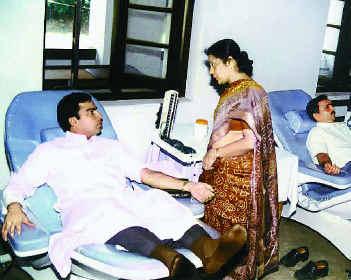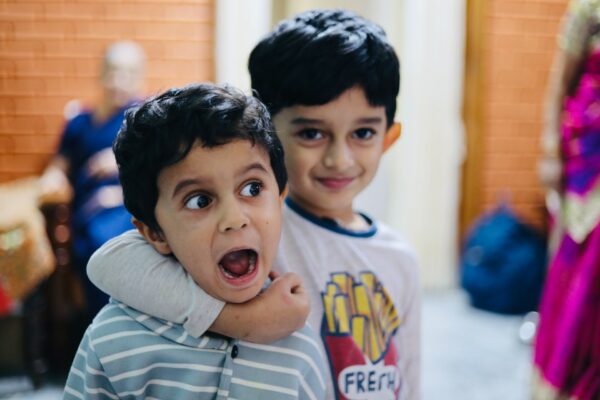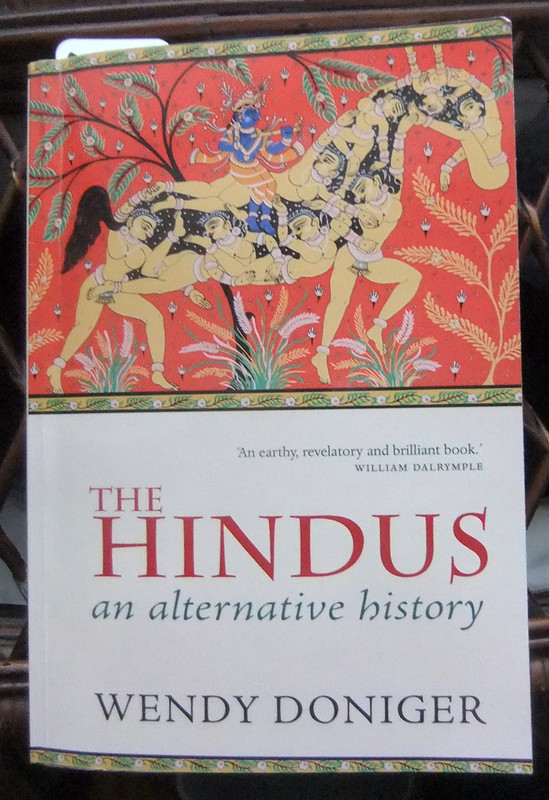By Ashok R. Chandran
The Hindu (Thiruvananthapuram)
THE STORY of the Association of Voluntary Blood Donors (AVBD) is part of the health sector lore of India. In 1979, less than two per cent of the blood required in the hospitals of West Bengal was met by voluntary donors. Twenty years later, thanks to AVBD, the figure was 71 per cent.
A silent revolution of similar kind completed its first year of service in Thiruvananthapuram this past week.
Like West Bengal of the 1970s, blood donation in Thiruvananthapuram today is largely by replacement donors—people who are called in an emergency by a friend or relative to replace the blood taken from the stock of the blood bank.
Enter All Kerala Blood Donors’ Society (KEBS), hoping to repeat the Bengal magic. ‘We motivate people to donate blood regularly, even when no emergency exists’, says U. Suresh Kumar, organising secretary of KEBS. ‘Voluntary donation ensures regular availability of blood in the region and can do away with the need to run around for replacement donors’, points out Suresh.
‘Voluntary donation can become a habit, just like brushing your teeth’, says Health Service official K. P. Rajagopalan. Motivating oneself to visit the blood bank every third or sixth month sounds impractical, until you meet Rajagopalan and Suresh. Whether or not there is a medical crisis involving the near and dear, they have been donating blood every six months, for the past 20 years.
KEBS is the brainchild of such spirited donors. ‘It is unique as an umbrella organisation that networks various blood donor forums’, says Dr P. V. Sulochana, Blood Transfusion Officer, Sri Chithira Tirunal Institute of Medical Sciences and Technology (SCTIMST).
During the past year, KEBS has conducted blood donation camps, organised a poster competition, and popularised the concept of blood donation in school assemblies. The National Cadet Corps, National Service Scheme unit of S. N. College (at Chempazhanthy), Terumo Penpol and other organisations are partners of KEBS.
Taking cue from the experiment in Vilappil panchayat, and with the help of the Federation of Residents’ Associations of Thiruvananthapuram (FRAT), KEBS holds meetings with residents’ associations and encourages them to maintain lists of voluntary donors.
Voluntary donation can become a habit, just like brushing your teeth.
K. P. Rajagopalan, health official
This year, KEBS will promote blood donation in the police force, which has a large number of fresh recruits. ‘The social service angle will lend a positive image to policemen’, says the former Director-General of Police, M. K. Joseph. ‘It will also ensure documentation of useful information’, he says. As chairperson of KEBS, when he recently suggested that systematic blood donation be revived in the police force, the response from top officials was positive.
Why do people not donate blood? Many visiting the KEBS stall at this year’s Flower Show said no one had asked them.
KEBS then asked people to come forward. Within days, 2,500 people had expressed willingness to donate blood, and now, KEBS has a database of blood donors.
Changes in social attitudes have helped KEBS. ‘We were touched by the response in some housing colonies such as M. P. Appan Nagar’, says M. K. Joseph. ‘Today, the need for blood, especially safe blood, is greater than in the past. People are more aware of the problem’, he explains.
Still, when it comes to donating blood, some unfounded fears persist, says Dr Sulochana.
And rising awareness is only half the story. ‘Blood banks can help by giving special attention to voluntary donors’, observes Suresh. ‘At the Medical College, due to the rush, replacement and voluntary donors are treated equally. KEBS can recruit donors, but in retaining them, blood banks also have a role’, he says. KEBS plans to work with Hospital Development Societies to set up assistance booths for voluntary donors.
The magnitude of the challenge is striking. ‘We require at least 100 donors per day’, says Dr Geetha V. of the blood bank at Medical College Hospital.
SCTIMST requires 30 donors per day. Other Government hospitals are also on the KEBS radar. To donate ‘safe’ blood, you must be in the age group of 18 to 60, and modern lifestyle should not have marked its presence on your platelets.
People like Rajagopalan and Suresh will have to ‘retire’ soon. But by building KEBS and popularising voluntary donation, they hope to keep safe blood flowing into the blood banks of Thiruvananthapuram.
Extra
KEBS website
This article on The Hindu website
More newspaper articles by the author
Credits: Photo from KEBS.




